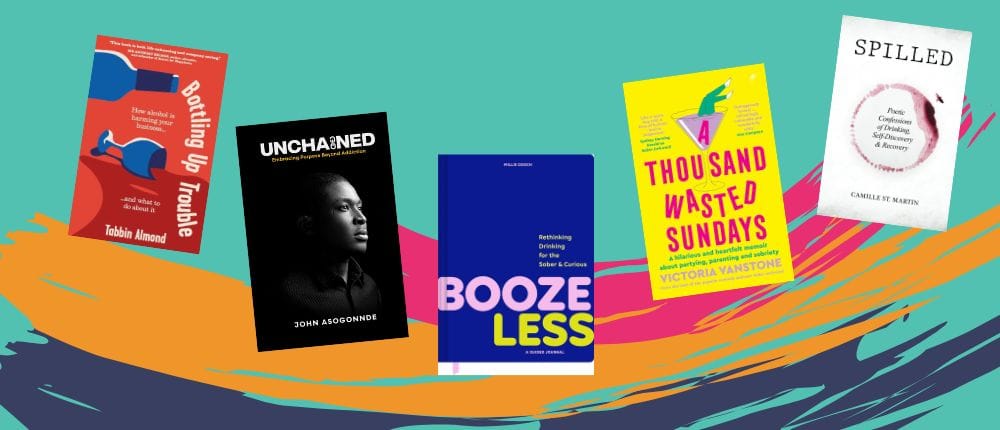
This website uses cookies to improve your experience. We'll assume you're ok with this, but you can opt-out if you wish. Read More
The Next Round: What happens after you change your drinking?


I’ve been unhappy with my drinking for many years, and I’ve heard that meditation could help me. I certainly know that if I’m not drinking, I’m going to need something to quieten the incessant brain chatter! Can mindfulness meditation help me change my drinking? Jennifer

In a previous article, I discussed the value of adopting a mindful approach to alcohol. But what about meditation specifically? Can meditating really help you cut down or stop drinking?
The simple answer is yes. Mindfulness meditation can fundamentally change your relationship with alcohol. As with any technique, it doesn’t provide all the answers on its own. But if you want to create and sustain long-term change, meditation can help you deal with the constant flow of your thoughts and feelings so that you can act from a place of conscious choice and intention.
This article explores the research evidence on mindfulness and explores how meditation can help you change your drinking. It also introduces a specific meditation to help you pay attention to your triggers for drinking that you can use in an emergency.
Changing your drinking can be complex; different approaches will work for different people. Fortunately, researchers help take the guesswork out of knowing what works by conducting studies, systematic reviews and clinical trials. This evidence base is important to us in Club Soda because we want to recommend tools and techniques that make a difference if you are cutting down or stopping drinking.
And mindfulness meditation is an approach that can work. Academic work on mindfulness-based approaches to substance misuse has been ongoing for more than a decade now, and there is an emerging body of evidence to support mindfulness-based approaches to alcohol. The earliest systematic review of the available evidence (Zgierska et al, 2009) showed that meditation and mindfulness-based approaches were safe and effective, but suggested that more evidence was needed. A subsequent review (Chiesa and Serretti, 2014) found that mindfulness-based interventions did reduce the consumption of substances like alcohol, and could have a positive impact on cravings.
People who take part in mindfulness-based programmes report significantly fewer heavy drinking days than those in 12 step programmes.
And the most recent randomised clinical trial (Bowen et al., 2014) showed that mindfulness-based relapse prevention programmes are actually more effective than 12 step programmes in reducing the risk of people using substances again. When researchers followed up at six months, people who had taken part in mindfulness-based programmes reported significantly fewer heavy drinking days than those in 12 step programmes. And after a year, targeted mindfulness practices were still supporting long-term outcomes by strengthening people’s ability to monitor and skillfully cope with the discomfort associated with craving or negative feelings.
If you’re interested in changing for the long-term, mindfulness meditation is a vital addition to your toolkit.
You may be hoping that meditation will help you achieve a state of inner silence and calm, devoid of troubling thoughts and feelings. So it can be seriously disconcerting when you first sit down to meditate. Out of nowhere, as you try to focus your attention on your breathing, you become aware of just how noisy your inner world is. That incessant brain chatter you were vaguely aware of turns into a shouting match. And your feelings are amplified as you sit quietly with them, unable to distract yourself. The urge to open your eyes and forget all about meditation can be overwhelming.
If this is your experience of trying to meditate, stick with it. It does get easier. If you’re troubled by your inner cynic telling you that meditating is pointless, you may need to ask them to be quiet just for a short while. They will come round to the idea of sitting quietly.
Mindfulness meditation gives you the ability to be with your thoughts and feelings without judging them or reacting to them.
When people talk about meditation as a practice, they mean it literally. Sitting in silence with focused attention is not a skill that comes naturally. It takes time and dedication to begin to uncover the benefits of meditating. But as you meditate, your perspective on what you are doing is likely to change.
Although mindfulness meditation can help you achieve a sense of calm and tranquillity, the real gift it gives you is the ability to be with your thoughts and feelings without judging them or reacting to them. As you are changing your drinking, this skill is invaluable. Drinking does not begin when we lift the glass or bottle; rather, drinking starts with the thoughts and feelings that tell you that alcohol is the only answer. When you meditate, you begin to notice that you are thinking and feeling these thoughts and feelings. You can then take a step back and let your thoughts and feeling be what they are. You don’t have to get caught up in them. You begin to find some space inside yourself. And that space gives you the power to choose.
So the point of practising meditation is not to become better at meditating but to become better at living, consciously and deliberately.
In Club Soda’s courses, we teach a simple mindfulness meditation called the breathing space. The breathing space is designed to help you notice your thoughts and feelings without reacting to them. When you want a drink, the breathing space is a useful timeout, letting you recognise unhelpful automatic behaviours so you can choose to respond differently.
The breathing space is an emergency meditation when you are under pressure, helping you avoid unwanted drinking.
One of the joys of the breathing space is how quick and easy it is. It’s sometimes called a three-minute breathing space, but in truth, you can move through the sequence in three seconds if you need to. You don’t have to find a yoga mat, sit down or light a candle. The breathing space meditation is something you can do standing in your kitchen, right when you are thinking of opening the fridge. Think of it as an emergency meditation when you are under pressure, helping you avoid unwanted drinking.
The breathing space is in three parts: awareness, centering and expansion.
So I’d encourage you to give this a go. If you want to follow along, during May I’m leading the breathing space live every Friday at wine o’clock on Instagram, Facebook and YouTube. Come and discover for yourself how mindfulness meditation can help you change your drinking.
Cheers

As well as being one of Club Soda’s co-founders, Dru Jaeger has trained as a mindfulness teacher. Discover more about how mindfulness can help you change your drinking with one of Club Soda’s courses, such as How to Drink Mindfully or How to Stop Drinking.
This website uses cookies to improve your experience. We'll assume you're ok with this, but you can opt-out if you wish. Read More
| Name | Domain | Purpose | Expiry | Type |
|---|---|---|---|---|
| wpl_user_preference | joinclubsoda.com | WP GDPR Cookie Consent Preferences. | 1 year | HTTP |
| PHPSESSID | www.tickettailor.com | PHP generic session cookie. | 55 years | HTTP |
| AWSALB | www.tickettailor.com | Amazon Web Services Load Balancer cookie. | 7 days | HTTP |
| YSC | youtube.com | YouTube session cookie. | 55 years | HTTP |
| Name | Domain | Purpose | Expiry | Type |
|---|---|---|---|---|
| VISITOR_INFO1_LIVE | youtube.com | YouTube cookie. | 6 months | HTTP |
| Name | Domain | Purpose | Expiry | Type |
|---|---|---|---|---|
| _ga | joinclubsoda.com | Google Universal Analytics long-time unique user tracking identifier. | 2 years | HTTP |
| sbjs_migrations | joinclubsoda.com | Sourcebuster tracking cookie | 55 years | HTTP |
| sbjs_current_add | joinclubsoda.com | Sourcebuster tracking cookie | 55 years | HTTP |
| sbjs_first_add | joinclubsoda.com | Sourcebuster tracking cookie | 55 years | HTTP |
| sbjs_current | joinclubsoda.com | Sourcebuster tracking cookie | 55 years | HTTP |
| sbjs_first | joinclubsoda.com | Sourcebuster tracking cookie | 55 years | HTTP |
| sbjs_udata | joinclubsoda.com | Sourcebuster tracking cookie | 55 years | HTTP |
| sbjs_session | joinclubsoda.com | SourceBuster Tracking session | Session | HTTP |
| Name | Domain | Purpose | Expiry | Type |
|---|---|---|---|---|
| mailchimp_landing_site | joinclubsoda.com | Mailchimp functional cookie | 28 days | HTTP |
| __cf_bm | tickettailor.com | Generic CloudFlare functional cookie. | Session | HTTP |
| NID | google.com | Google unique id for preferences. | 6 months | HTTP |
| Name | Domain | Purpose | Expiry | Type |
|---|---|---|---|---|
| _ga_10XZMT03ZM | joinclubsoda.com | --- | 2 years | --- |
| AWSALBCORS | www.tickettailor.com | --- | 7 days | --- |
| cf_clearance | tickettailor.com | --- | 1 year | --- |
| VISITOR_PRIVACY_METADATA | youtube.com | --- | 6 months | --- |
Join Club Soda for 10% off your first order of drinks for UK delivery. Plus get our latest news and special offers for members to choose better drinks, change your drinking and connect with others.
If you get an error message with this form, you can also sign up at eepurl.com/dl5hPn